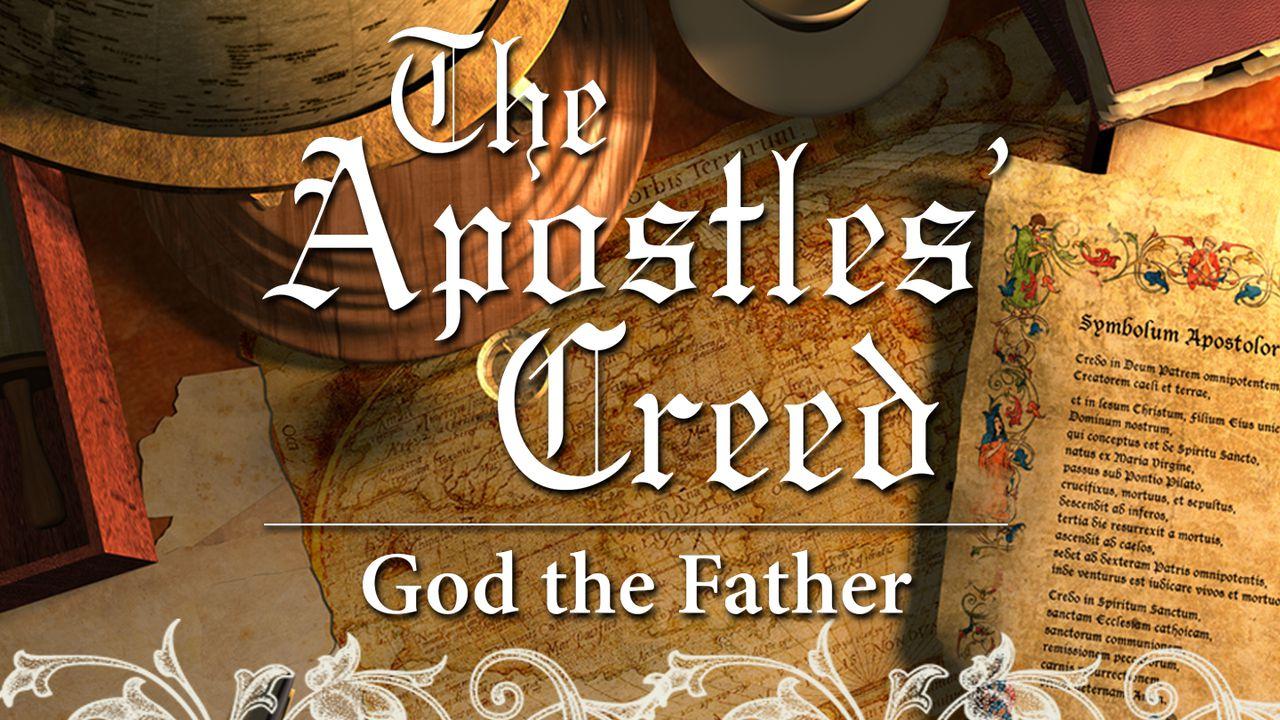The Apostles’ Creed: God The Father预览

God’s Creative Power: Genesis 1:1
Most Christians are familiar with the idea that God created and sustains the universe, largely because Scripture refers to it so often. In fact, if we open our Bibles to the first page and begin reading, the first thing we are told is that God is the maker of heaven and earth. As we learn in Genesis 1:1:
In the beginning God created the heavens and the earth (Genesis 1:1).
After this introductory verse, the rest of Genesis 1 explains that God created and ordered the universe within the span of six days.
Now, throughout the history of the church, there have been many different theories about the interpretation of the creation account in Genesis 1. Nearly all theologians have agreed that God created the universe ex nihilo or out of nothing. That is to say, before God created the heavens and the earth, nothing existed except God himself. There was no preexistent matter from which God made the universe. And many have suggested that God created even time and space itself.
But theologians have often disagreed about the precise manner in which the Father created the universe, especially over the nature of the six days of creation. Several Church Fathers, such as Clement, Origen and Augustine, believed that the days were figurative representations of a creation that probably took place in a single moment. Others, such as Irenaeus and Tertullian, saw them as normal 24-hour days. Later, when science began to suggest that the universe was very old, many theologians began to read the creation account in new ways. Some suggested that the days were normal 24-hour periods, but that large stretches of time intervened between the days on which God created. Others interpreted the days as figures of speech that represented eras or epochs.
Certainly the issue of the days of creation in Genesis 1 is a hot one that has been the source of a lot of arguments. I think one of the issues is: what kind of literature is this? Is this literature which is designed to give a sensuous fact, facts relating to the senses, or is it literature designed to teach spiritual fact. Now, we shouldn’t drive a wedge between those two. God’s the creator of this world and they should fit together. But if we read Genesis 1 as a science text, that will lead us to a different interpretation than if we read it as a discussion of the meaning and nature of creation. – Dr. John Oswalt
For the early church and their use of the Apostles’ Creed, what seems to have been most important was that believers acknowledge that God and God alone, led by the person of the Father, created and sustains the entire universe, including both the spiritual and material realms, with all their substances and creatures.
This is the same idea that the Levites emphasized in Nehemiah 9:6. Consider their words:
You alone are the Lord. You made the heavens, even the highest heavens, and all their starry host, the earth and all that is on it, the seas and all that is in them. You give life to everything, and the multitudes of heaven worship you (Nehemiah 9:6).
As we read here, God alone made the universe. And God alone continues to give life to everything that exists, sustaining the universe he created.
圣经
读经计划介绍

This reading plan addresses the basic idea of God, looking at some general things the Bible teaches about his existence and nature. It focuses on the phrase "Father Almighty," paying attention to some distinctive qualities of the first person of the Trinity. And it explores the Father's role as the Maker, or creator, of everything that exists.
More

